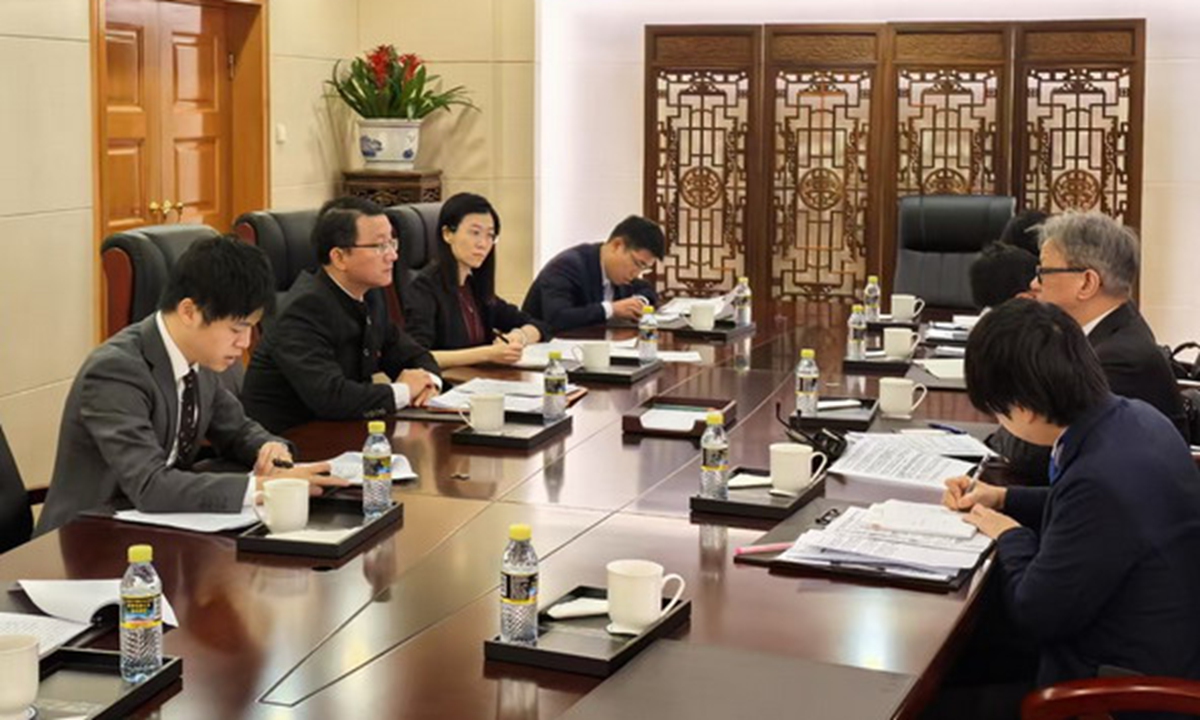
Photo:fmprc.gov.cn
Liu Jinsong, director-general of the department of Asian affairs of China's Foreign Ministry, met with Chargé d'Affaires of the Embassy of Japan in China Yokochi Akira on Monday and lodged a solemn representation, expressing serious concern and strong dissatisfaction over Japan's recent negative moves related to China during recent Japan-US summit meeting and in a joint statement, according to a statement published on the website of the ministry.
US President Donald Trump and visiting Japanese Prime Minister Shigeru Ishiba held their first official meeting in Washington DC on Friday.
The two sides issued a joint statement claiming to emphasize the importance of maintaining peace and stability in the Taiwan Straits, and claiming that Article 5 of the US-Japan Security Treaty applies to the Diaoyu Islands, and opposing China's so-called "unlawful maritime claims, militarization of reefs, and provocative activities" in the South China Sea.
Asked for comment, Guo Jiakun, a spokesperson for the Chinese Foreign Ministry, said on Monday that the content related to China in the US-Japan Joint Leaders' Statement openly interferes in China's internal affairs, attacks and discredits China, and exacerbates regional tensions. Guo added that China is strongly dissatisfied and resolutely opposed to this. China has made solemn representations to US and Japan.
The Taiwan question is purely an internal affair of China and is the core of China's core interests, leaving no room for any foreign interference, Guo said.
Both the US and Japanese governments have made solemn commitments to China on the Taiwan question. In particular, Japan bears serious historical responsibility for the aggression and colonization of Taiwan and should be especially cautious in its statements and actions regarding Taiwan, the spokesperson said.
The greatest threat to peace in the Taiwan Straits today is the "Taiwan independence" separatist activities and the indulgence and support of external forces, Guo noted. If relevant countries truly care about peace and stability in the Taiwan Straits, they should adhere to the one-China principle and unequivocally oppose "Taiwan independence," Guo said.
Taiwan's participation in international organization activities must, and can only, be handled in accordance with the one-China principle. Taiwan has no basis, reason, or right to participate in international organizations that only sovereign states can join.
The Diaoyu Islands and its affiliated islets are inherent Chinese territory. China's activities in the relevant maritime areas are completely legitimate and lawful, Guo said.
China has always acted in accordance with World Trade Organization rules, and the so-called "economic aggression" by China is entirely out of nowhere, Guo noted.
"We urge the US and Japan to adhere to the one-China principle and their commitments, immediately cease interfering in China's internal affairs, and not send any wrong signals to the 'Taiwan independence' forces in any form," the spokesperson said.
They should respect China's territorial sovereignty and maritime rights, stop manipulating China-related issues, and play a constructive role in promoting peace and development in the region through concrete actions, Guo noted.




